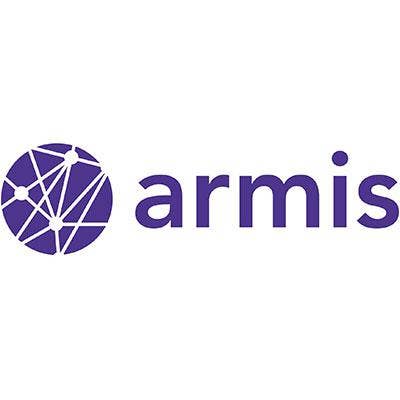Armis Channel Chief: IoT Security Startup Aims To Double Partner Roster, Build Out Channel Leadership In 2018

The IoT Service Opportunity For The Channel
Armis’ channel chief, Mike Baker, has lofty goals for the IoT security startup’s channel partners in 2018: to build out the channel leadership team and double the number of partners bringing IoT security solutions to market.
Palo Alto, Calif.-based Armis, founded in 2015, offers an agentless IoT security platform that lets enterprises see and control any device or network. Armis said its platform integrates with existing IT infrastructure and is easy to deploy.
Baker, who came to Armis in April after 20 years working with security companies including McAfee and Cylance, hopes that the company can work ’100 percent’ through partners. Following are excerpts of Baker’s conversation with CRN.

You joined Armis in April – what attracted you to work at this IoT security startup?
When I was at Mcafee and Cylance I continually heard this idea around how it would be nice to put an agent on servers, laptops, desktops – but customers were asking me what they should do about these other IoT devices in their enterprises. It became a high priority for me on our road map.
We’d go back and have this technical conversation about it, and it’s a tough problem to solve – that’s been in the back of my mind for more than four years as an opportunity. You can see the amount of devices exponentially growing in your home and it’s the same with enterprise. That’s what Armis’ platform is trying to solve.

What’s your main focus around Armis’ channel partners?
My focus at Cylance was around the channel – and I learned what to do there, but also came away with many lessons. As I joined Armis in the first week of April, my maniacal focus as a startup is that no matter what, we’re going to be channel-focused. That involves two things – first, we’re not going to sell services so it can be an opportunity for partners, and two, we’re 100 percent channel focused. Those are the two most important things to me.

What's the services opportunity for partners, particularly with IoT security?
In my past life, I’ve seen that if you have a team on the manufacturing side that has been incentivized to sell services, it’s wildly disruptive to the channel. So when I’m talking to partners, they’re putting a whole service behind what Armis is doing. Instead of a proof of concept, which is typically free, they can do IoT assessment services for customers, and get paid for that service. Instead of doing work for free, partners are creating services around our products to create great value.
IoT assessments take about a week to do, and partners can create a map, to show customers [which products are connected to the network], branded with the partner information. And if it’s an enlightening report, you have this new opportunity for other services being generated and can sell products after that. The partners have created even more value for the end user.

What have your goals been for Armis’ partners as you build out the channel program?
Our program has some foundational elements that will change over time. When I present to partners today, I like to talk about three areas: We’ll never compete on services, and Armis’s minimum goal is 20 points gross profit for partners [on the product]. While also recognizing that partners control pricing to the end user and there is a great opportunity for gross profit to be much higher for partners. We’re leveraging Palo Alto [Networks'] playbook to take our business to market – we want to be more channel-friendly.

What value are channel partners bringing to Armis in terms of vertical market expertise?
When we look at our forecast … we work with customers in up to eight verticals like health care, manufacturing, retail and financial services. As we generate opportunities, we’ve seen there’s certain partners focused on financial services, so they already have those relationships established.
There’s a piece of it, where the partner becomes important around their IoT expertise for the customer. Specifically if partners are interested – it’s relevant for end-user customers to want to talk about IoT as well. Partners' expertise in IoT is managing relationships.

How will sales of IoT security solutions be different for security channel partners?
At Armis, the offering is a great opportunity for partners to be even more valuable to their end customers with IoT assessments and proofs of concept. The expertise our partners can show the end users and their knowledge and reporting capability – as well as the integrations into other security offerings they can provide – establishes the partner as the expert in this field.
The other thing that we’re seeing – Armis has been around for two years and we launched in June, coming out of stealth. What we’ve seen in our IoT solutions is that we’re able to show real value very quickly, and that has accelerated deals.

What’s unique about Armis’ IoT platform?
When you think of IoT end-user security, a certain percent of their laptops and servers may not have an agent on that – and in the IoT world, there are devices that also don’t have agents – but it’s equally a platform of risk.
We give the visibility for all the parties who have a lot of devices that are legitimate endpoints, but no ability to control these devices. The partners can bring value with the IoT assessments because they already have the relationships.

What’s your future goals in 2018 for your channel partners?
What we’ve done to date is try to keep it at a manageable number of partners, those who are relevant to us and who work with targeted end users. We’re close to having 10 to 12 partners right now that are highly interactive with us, both national and regional partners.
We’ll look to likely double that next year, and bring on more partners sometime in the first half of year. We also want to start to build out our channel leadership organization and really target partners that are interested in growing their business – because the services component is key. We have partners who want to build the services component around what Armis has to offer.
We’re seeing customers who want that level of implementation and expertise, and we want to find the partners that want to build that solution. We see devices springing up in the enterprise now and the number one thing is to make sure we’ll have partners who are really interested in the security service offerings around these devices.